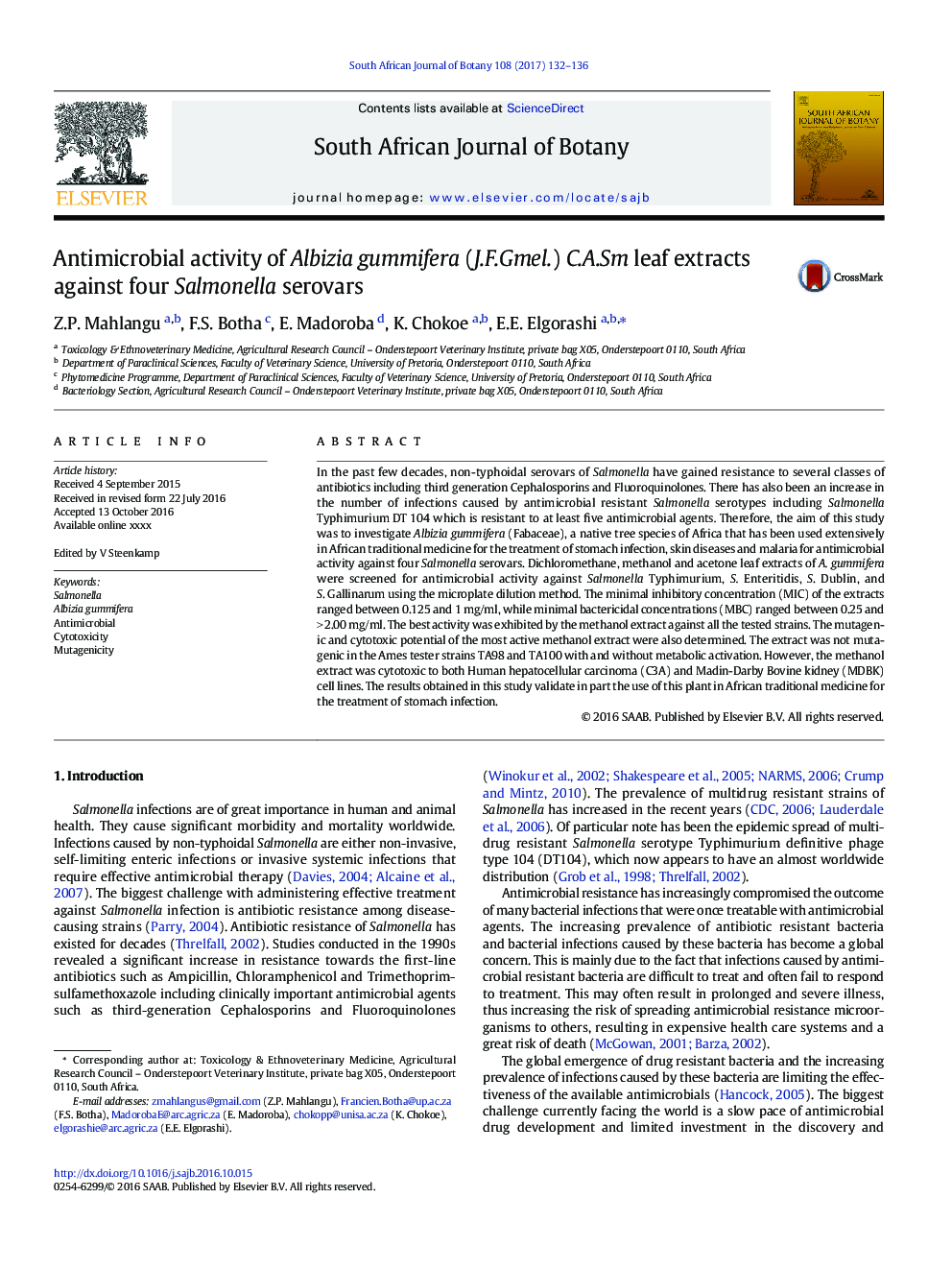| کد مقاله | کد نشریه | سال انتشار | مقاله انگلیسی | نسخه تمام متن |
|---|---|---|---|---|
| 4520077 | 1625150 | 2017 | 5 صفحه PDF | دانلود رایگان |
• Methanol extract of Albizia gummifera had significant antimicrobial activity against four Salmonella serovars.
• The extract was cytotoxic to both C3A and MDBK cell lines.
• The extract was not mutagenic with and without metabolic activation in Ames test.
In the past few decades, non-typhoidal serovars of Salmonella have gained resistance to several classes of antibiotics including third generation Cephalosporins and Fluoroquinolones. There has also been an increase in the number of infections caused by antimicrobial resistant Salmonella serotypes including Salmonella Typhimurium DT 104 which is resistant to at least five antimicrobial agents. Therefore, the aim of this study was to investigate Albizia gummifera (Fabaceae), a native tree species of Africa that has been used extensively in African traditional medicine for the treatment of stomach infection, skin diseases and malaria for antimicrobial activity against four Salmonella serovars. Dichloromethane, methanol and acetone leaf extracts of A. gummifera were screened for antimicrobial activity against Salmonella Typhimurium, S. Enteritidis, S. Dublin, and S. Gallinarum using the microplate dilution method. The minimal inhibitory concentration (MIC) of the extracts ranged between 0.125 and 1 mg/ml, while minimal bactericidal concentrations (MBC) ranged between 0.25 and > 2.00 mg/ml. The best activity was exhibited by the methanol extract against all the tested strains. The mutagenic and cytotoxic potential of the most active methanol extract were also determined. The extract was not mutagenic in the Ames tester strains TA98 and TA100 with and without metabolic activation. However, the methanol extract was cytotoxic to both Human hepatocellular carcinoma (C3A) and Madin-Darby Bovine kidney (MDBK) cell lines. The results obtained in this study validate in part the use of this plant in African traditional medicine for the treatment of stomach infection.
Journal: South African Journal of Botany - Volume 108, January 2017, Pages 132–136
